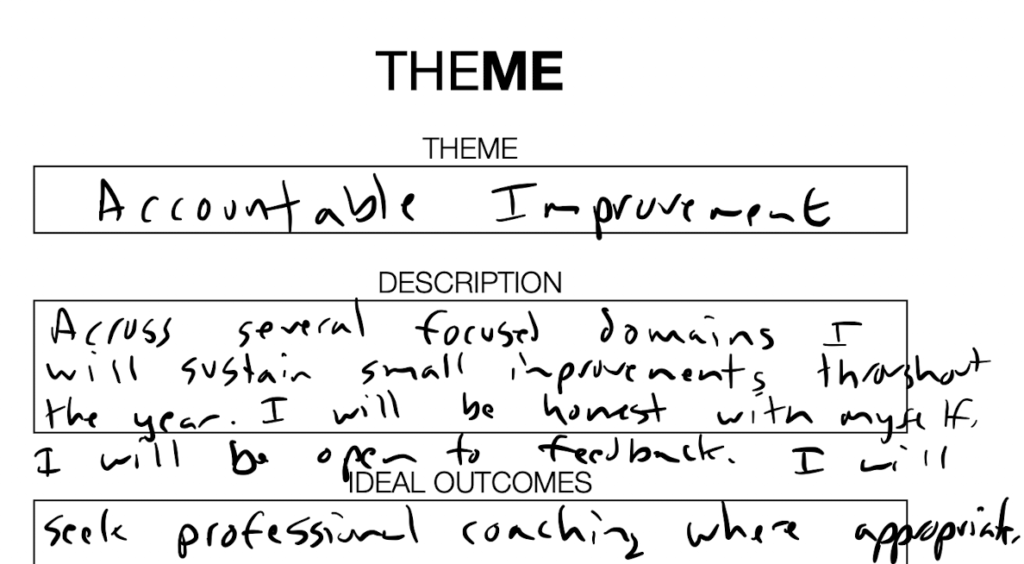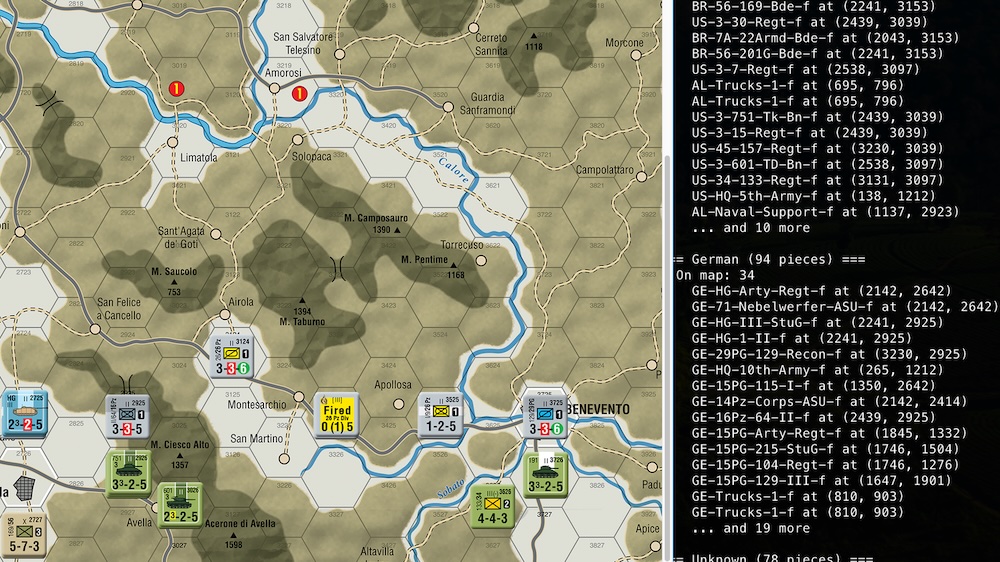Debt-Free Living
Note: this is going to be a personal, lengthy, non-gaming related post. Don't worry - I'm not going to turn this into a personal finance blog. There are a number of things I just wanna say and this is my platform for saying it.
Some Ancient History
I was raised in a frugal household but we didn't talk much about money. My parents stressed economy in a number of ways: minimizing the use of air conditioning and heating, not wasting money on sometimes inferior name-brand clothes, and not eating out. While I don't remember conversations about saving, use of credit, we did often talk about the stock market and insurance (both parents were in the insurance business). Heading off to college I had a decent idea of how to manage money, but these ideas were mostly from intuition and random observations and certainly not through any sort of programmed training (school, parents, or other sources).
My memories of my college years and finances mostly involve stress. I went to a very expensive private university but had a full tuition scholarship from the US Air Force plus a grant from the engineering school that paid for some of my housing and book costs. I didn't work during school - I didn't think it would be possible to manage getting 2 BS degrees plus fulfill my ROTC obligations while holding down a job. The Air Force paid me $100 per month as a stipend which helped cover some basic expenses.
The stress came in regarding how I handled my finances in relation to my parents, and the mutual expectations we had in this area which were largely never discussed. My (immature) thinking at the time was largely "hey, I got a free ride and my parents are almost completely off the hook for college. They should gladly provide the free cash I need to live comfortably at school." I'm sure my parents had a very different perspective. My dad had gone through a number of job changes over the past 5 years (that's why I changed high schools 5 times) and I suspect finances were tighter then they had expected going into my college years. The real issue here is that we never sat down and talked about expectations. What sort of budget should I be living on? How much should I expect to receive from my parents on a monthly basis? Instead, we basically lived month to month for four years, with periodic phone calls from me asking for more money. I hardly lived a flamboyant life during those years, but I certainly wasn't frugal either. It also didn't help that the summer jobs I held only covered my living expenses and didn't allow me to put away money to carry me through the school year. This was certainly a conscious choice on my part.
I think it was around my sophomore or junior year that I responded to my first credit card offer. Even in the late 80s the credit card companies were all over college campuses. I don't know if I got a free pizza or t-shirt with my card, but I didn't have any problems qualifying and so started my adult life in managing debt. I lived month to month accumulating a small amount of debt, making monthly payments more than the minimum but less than the payoff. I assumed that I would be able to clean it all up once I started my day job after college.
Towards the end of undergrad I decided that I would delay my active duty commitment and go to graduate school. I was originally accepted into a USAF program that would pay for 1-2 years of graduate engineering work and did not expect to have to pay. I was all set to go to Stanford when I got the word in March or April that the program was discontinued - if I wanted to delay I would instead have to pay my own way. The good news is that I wouldn't incur any additional active duty commitment while on the educational delay. I readjusted my sites for grad school on a less expensive institution, especially given the fact that it was too late to get any reasonable financial aid package. I decided that UCSB was a great fit - affordable, a better program fit (I'd be studying computer and software architecture instead of signal processing), and a two year program that would be well paced for me.
This choice also led to some additional stress - once again, I never sat down with my parents to fully discuss the financial implications of this choice. I was planning on having them fill in some financial gaps for me in order to attend school based on an indirect, non-specific conversation we had that spring. That summer (1990) things came to a head when I realized that they were not going to be able to provide much assistance at all. This led to some mutual frustration and a bit of scrambling on my part. I decided to drive to California quite a bit earlier than originally planned to explore my options for financial aid, work, etc. I think arrived in Santa Barbara around 3-4 weeks before the start of classes.
That decision paid off as I was able to make myself somewhat of a nuisance in the graduate engineering office. I got things underway to work towards in-state tuition and let them know that I was very interested in any teaching or research assistantships (TA, RA) that are available. I also managed to pull in a $7,500 student loan which would allow me to at least get through the first semester. My persistence was noticed - a new grant came in for an RA position that an existing TA was going to fill. That left an opening and I got the first call - I'd be teaching the undergraduate EE control systems lab. This TA position also came with another benefit - they would grant me in-state tuition starting with the first semester. This was HUGE for me, allowing me to get through 2 years of grad school without taking out any more than the $7,500 loan. It didn't hurt that Julie and I married in May 1991 and I was able to lean on my new sugar-mommy.
This is all leading to some key points:
- Julie and I entered into our marriage with some of my credit card debt (less than $2000, maybe less than $1000) plus my $7,500 student loan.
- Julie brought no debt to our marriage. In fact, if I recall, she brought a tidy some of money that was left over from her education fund.
Early Married Life
If I were to assign a grade to how we managed our finances in our early married life, I would give us a B+ or A-.
We've purchased 4 cars in 15 years, all new, all financed. The good news is we paid off every car we purchased within 18 months of the purchase. We're going on 9 years for our Dodge Durango and 6 years for the Toyota RAV4, with no immediate plans to replace either.
We bought our first home in Boise when I left the USAF to work for Micron Technologies. We bought our second home when we moved to Sherwood, Oregon in 1998. We took advantage of a VA loan to get essentially a zero down mortgage for the Boise home, and built enough equity there to get a decent down payment for the Sherwood house. Early on we started making additional principal payments on our home with the thought that it would be nice to have it free and clear sometime short of 30 years.
We've always managed to fully fund any tax-free or tax-deferred retirement options at our disposal. Julie grew up with strong foundation of savings, mostly derived from mother-mandated reading of the Richest Man in Babylon, and we believe firmly in the pay-yourself-first mentality. Company sponsored retirement plans are a great way to optimize this model.
Credit cards have always had a place in our household, though early on we committed to paying off balances each month and not carrying debt. We were not always 100% compliant with this policy, sometimes going overboard and having to play catchup. Every 3-4 years we would have a collective "oh shit" experience and regroup, look at our budget, and get things under control. This moment was almost always inspired by a month when we couldn't cover the credit card balance.
Still, we felt that we were doing just fine and knew that we were handling our finances better than your average married couple in America. We had a healthy fear of consumer debt and a decent nose for telling good debt from bad debt. Here's a recap of our situation at this time:
- Our only debt is our house
- From time to time we overspend on the credit card and can't pay the full amount off at the end of the month
- We are saving in company-sponsored retirement plans, plus a bit extra in Roth IRAs, but that's it
The Last 3 Years
I started listening to Dave Ramsey on a local radio station about 3-4 years ago. He was a lot preachier then, even condescending at times, but his message resonated with me: stay out of debt and free up cash flow so that you can fund the things that are important to you. "Live like no-one else, so that later you can live like no-one else." I'm not to proud to admit that what I loved the most was the associated schadenfreude as I listened to all of the stories from those poor souls that were taking out payday loans to make their minimum credit card payments. It didn't hurt that most of the callers have southern/rural accents, only adding to the sense of elitism one can feel living here in the enlightened Pacific northwest. None of this stuff really applies to us, right? We pay off our credit cards every month, don't have a car payment, and are well on our way to paying off our home.
In fact, we were likely vastly under-performing our potential in terms of savings, security, and future planning. We had long ago abandoned any sort of budgeting process and really only discussed high ticket purchases. If I wanted a new book, CD, DVD, or boardgame I would just buy it. We had fallen into the trip of many supposedly affluent Americans - allowing our spending to grow exactly in proportion to income growth and failing to take advantage of opportunities to leverage that cash flow for even greater opportunities.
About 3 years ago we were fortunate enough to be able to take some Corillian stock earnings off the table. While I had long ago lobbied against paying off the house too early (the math just doesn't make sense, does it?), Julie and I had a heart-to-heart and decided that we would use any extra cash available to pay off the house. We managed to do so in early 2004 and it was an amazing life event for us. Unfortunately, there were some mistakes in tax accounting and we ended up having to write a large check to the IRS in early 2005. Where did they money come from? You guessed it - a home equity line of credit. So just like that, we were back into some house debt.
We also went in on a purchase of a beach house with Julie's mom and step-dad in the summer of 2004. It was relatively easy to find the free cash flow to pay for the mortgage, especially considering that we had just finished paying off our primary residence (that was a big factor in the decision to participate in the purchase).
The home equity debt lingered until the fall of 2006. Dave Ramsey showed up on my XM radio and I listened to him off and on throughout 2006, even adding his 1 hour podcast to my subscription list. Sometime in September or October, I admitted to myself that I was just sick and tired of carrying the home equity debt. I also admitted to myself that our spending was out of control - not going into debt out of control, but still out of control enough to potentially prevent us from reaching some long-term goals. We needed a new plan and process to fix things up. I decided that I would try Dave's Total Money Makeover "by the book". Situation summary:
- Mostly paid off house - some home equity debt lingering
- Added a mortgage for the beach house
- Still playing by the same credit card rules
A New Plan
Dave Ramsey likes to characterize married couples as "the geek and the free spirit". Can you guess which one I am? I started doing some serious number crunching and account analysis. I started off just using Excel with some downloaded history data from my bank and credit card accounts. My mission: find ways to free up cash flow. Julie and I immediately set a few end-of-year goals:
- Get a $1000 emergency fund established
- Pay off the home equity loan
- Be well on our way to a fully funded $10,000+ emergency fund
Step 1 was easy, step 2 took some work. We attacked the cash flow from a few different angles. First, we dialed down any discretionary investing or extra payments. This included reducing the monthly college savings for Jacob and Matthew from $1000 to $200. We also agreed to stop making extra payments on the Salishan mortgage for a while. Second, we agreed to get on a written budget, spending every dollar on paper before the month starts. For the first month we did this in Excel using a downloaded template I found, but the geek in me took over and I went back to using a Personal Finance Manager (PFM). Even though I'm a long-time Quicken fan, I decided to go with Microsoft Money this time around. I'm sure I could have made this work with either tool, but I happened to have a free copy of Money sitting on my shelf (one of the benefits of working in the online finance business).
Side note: The budgeting tools have improved dramatically in PFMs. My absolute favorite feature in Microsoft Money is the "reallocate..." option on budget categories. There's nothing like a surprise in the middle of a month to throw off the best written plans, but I find that by using the reallocate feature I'm able to keep the bottom line balanced/fixed while staying on top of and reacting to surprises. I'm also using this feature to track Julie's and my slush fund for discretionary purchases without losing track of the real category that the purchase belongs to. For example, I might start the month with a $50 boardgame budget, and a $100 slush fund for discretionary purchases. If I spend $80 on boardgames, I reallocate $30 out of my slush fund into the boardgame category to balance the budget.
We were very realistic going into the budgeting process and didn't overdo it cost-cutting wise. The process of writing everything down was enough to wake us up and start changing habits. I also closed one credit card and we agreed to use our only remaining credit card for reimbursable business expenses. Julie and I each got a First Tech debit Visa card and we started using those for all personal purchases.
I can't stress enough how important the move from credit card to debit card was. While it isn't the same as spending green cash, using a debit card is much closer to that and when you see a bank account declining balance you feel the pain of spending much closer to purchasing event than you do with a credit card.
The end result for 2006 was that we easily met our goals and got our emergency fund up to around $6,000 by the end of the year. I also think it is having a measurable positive impact on our marriage relationship. We are openly talking about money in a very healthy way. We each have fairly big ticket cost items on the horizon we want to plan for, and we are doing just that: planning for them. We are in the middle of a 3 year home remodeling project and are not going in debt to see it through conclusion. Here's a summary of how we ended 2006:
- Debt free except for the beach house
- Almost a fully funded emergency fund
- Living on a written budget
- Poised to free up significant cashflow for savings
How We Live Today
We are still only starting this journey as we began the process with a number of projects in flight, mostly in the form of furniture purchases and other home decorating plans. Projects like this follow a typical lifecycle: first you start measuring where you are, then you try to control the overall system to get it managed, then you start to optimize it to get the most efficiency from the moving parts. We are just now transitioning into this optimizing stage.
What I also love about this process is that we've been very inclusive of Jacob and Matthew during the process. They can't help but eavesdrop and hear us talking about finances, and we consciously chose to be upfront with them about what we're doing so that they won't get worried that we are in financial trouble. Jacob read Total Money Makeover cover to cover and Matthew loves to say "better than I deserve". The boys are on a pay-for-work commission plan and have their own savings goals. I believe they are both developing a firm understanding of good vs. bad debt and have a healthy fear of credit cards.
Julie and I each have $100 in our monthly "slush fund", which is probably a bit too small. I would rather zero out as much of the discretionary budget categories (books, music, movies, boardgames, etc.) and rely on allocations month-to-month from the slush accounts. We're taking it in stages and I don't want to force drastic behavior changes.
We have yet to figure out what our target/desired monthly savings rate should be, and how we want to allocate those dollars. Should dial back up the 529 plans for the kids? I worry about overfunding those accounts - I'm thinking we should only fund up to the state tax deduction that we get. I'm not sure the long-term tax savings are worth the lack of flexibility we will have compared to just hiding the money away in decent mutual funds.
What the Future Holds
The single biggest looming question that Julie and I will need to face is whether or not to accelerate payoff on the Salishan mortgage. This is a joint decision with the in-laws so it can't (easily) be a unilateral choice on our part. This sort of decision gets into a very controversial and often divisive area of personal finance - is it wise or stupid to pay off real-estate debt early, especially on property that is very likely to have significant appreciation during the life of the mortgage?
There's a related issue that Dave Ramsey often talks about regarding how to pay down non-mortgage debts. Conventional wisdom says that you attack the highest interest debts first and work your way toward low interest debt. Dave says this wisdom is flawed because of the lack of recognition of the psychological benefits of knocking off entire debts - getting those small wins that show progress. That's why he says to order your debts smallest to largest and pay them off in that order. Other than in extreme circumstances, the difference in interest paid will be very small (when compared to the other approach) and he asserts that people are much more likely to succeed when they get that initial progress kick.
This is related to the mortgage payoff question in that there's more to the answer than just a numbers analysis. Again, conventional wisdom says that you should take the cashflow you would use to make extra mortgage payments and invest it - you'll get a better rate of return on those funds, especially when you discount the mortgage interest rate by your tax deduction. It just isn't this simple - there are other factors at play here:
- You need to risk-adjust any projected returns when you invest those funds. There's no such thing as a guaranteed rate of return in the stock market. If you want safe, guaranteed returns, it is unlikely you'll get a better return on your money than paying off the mortgage. Still, in the long term, I doubt anyone will argue that over a 5+ year period the odds are pretty good you'll do better with a decent mutual fund.
- The psychological benefits of owning your home free and clear. It is very liberating! It encourages free thinking and risk taking when you don't have that $1000 (or $800 or $2000 or whatever) monthly payment looming over you.
- The discipline factor - let's face it, most people are not disciplined enough to stick to a surplus investing plan and are better off working towards a paid off home as they approach retirement age.
All that said, even if you detest what Dave Ramsey has to say about paying off mortgages (you know who you are!) it is hard not to agree with the key first steps in Dave's plan (this is from memory... Jacob can let me know if I got it right):
- Establish a $1000 emergency fund
- Get on a written budget
- Stack your debts (non-mortgage) smallest to largest and attack them in that order - this is the debt snowball.
- When you are done with the debt snowball, fully fund your emergency fund with 3-6 months of living expenses.
- Start investing 15% of your gross income into retirement savings
- Save for college for your kids
- Pay off the home mortgage
I don't think you'll go wrong if you "only" accomplish steps 1-6 and decide to keep the home mortgage around for a while longer.








